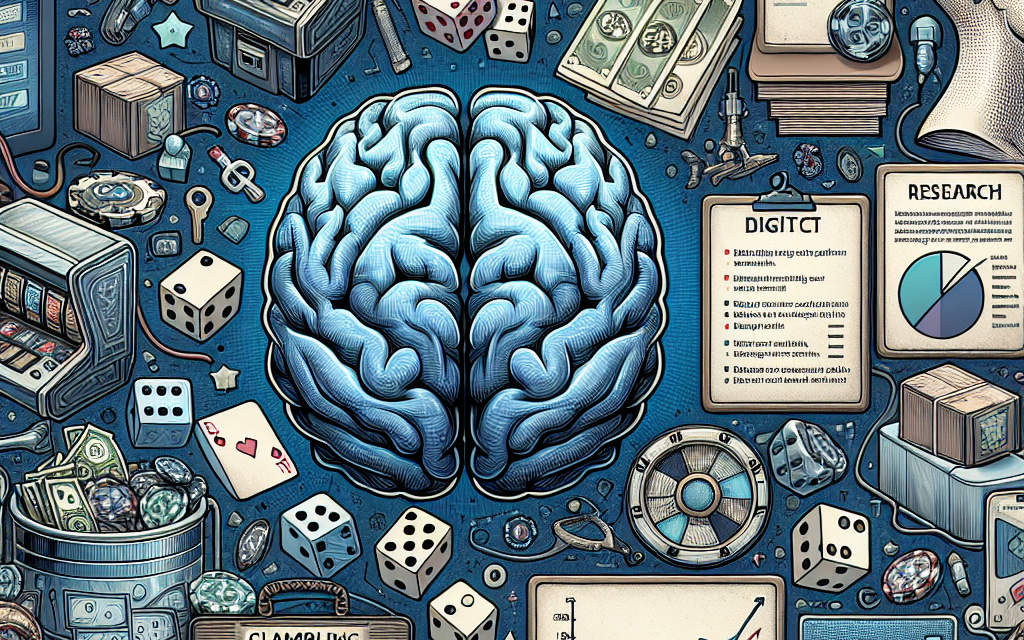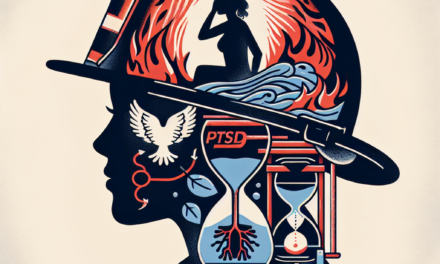The Impact of Loot Boxes on Gambling and Mental Health: Insights from Research
In recent years, the gaming industry has witnessed a significant rise in the popularity of loot boxes—virtual items that players can purchase or earn in games, which contain random rewards. While they are often marketed as a fun and engaging feature, research has begun to uncover the potential implications of loot boxes on gambling behaviors and mental health. This article delves into the multifaceted impact of loot boxes, exploring their relationship with gambling, the psychological effects on players, regulatory responses, and the broader implications for mental health.
Understanding Loot Boxes: Definition and Mechanisms
Loot boxes are virtual containers that players can acquire in video games, often through microtransactions or as rewards for gameplay. The contents of these boxes are typically randomized, which can include in-game currency, character skins, weapons, or other enhancements. The allure of loot boxes lies in their unpredictability, akin to gambling, where players invest money or time for a chance to receive valuable items.
Several key mechanisms drive the appeal of loot boxes:
- Random Reward Structure: The randomness of loot boxes creates a sense of excitement and anticipation, similar to traditional gambling. Players may feel a rush when they open a box, hoping for a rare item.
- Variable Ratio Reinforcement: This psychological principle suggests that rewards given after an unpredictable number of attempts can lead to higher engagement. Loot boxes often employ this strategy, encouraging players to spend more to achieve desired outcomes.
- Social Comparison: In many games, players can showcase their loot, leading to social pressure to acquire rare items. This can drive players to spend more money to keep up with peers.
- FOMO (Fear of Missing Out): Limited-time loot boxes or exclusive items can create urgency, compelling players to purchase boxes to avoid missing out on unique rewards.
Understanding these mechanisms is crucial for recognizing how loot boxes can influence gambling behaviors and mental health. As players become more invested in the outcomes of loot boxes, the line between gaming and gambling can blur, leading to potential risks.
The Link Between Loot Boxes and Gambling Behavior
Research has increasingly focused on the parallels between loot boxes and gambling. Studies have shown that the mechanics of loot boxes can lead to gambling-like behaviors, particularly among younger players. A significant concern is that loot boxes may serve as a gateway to more serious gambling issues.
One study published in the journal Addictive Behaviors found that individuals who engage with loot boxes are more likely to develop problematic gambling behaviors. The study surveyed over 1,000 gamers and found that:
- Approximately 30% of participants reported spending money on loot boxes.
- Those who spent money on loot boxes were more likely to engage in other forms of gambling, such as sports betting or casino games.
- Players who reported higher levels of excitement when opening loot boxes were more likely to exhibit signs of gambling addiction.
Another research effort by the University of Plymouth highlighted that loot box spending is often impulsive, with players frequently spending more than they intended. This impulsivity is a hallmark of gambling addiction, where individuals chase losses or seek the thrill of winning.
Moreover, the accessibility of loot boxes in popular games, especially those targeted at younger audiences, raises ethical concerns. Games like FIFA and Overwatch have integrated loot boxes into their monetization strategies, making them easily accessible to children and adolescents. This exposure can normalize gambling behaviors at a young age, potentially leading to long-term consequences.
The Psychological Effects of Loot Boxes on Players
The psychological impact of loot boxes extends beyond mere gambling behavior. The thrill of opening a loot box can lead to a range of emotional responses, from excitement to disappointment. These emotional highs and lows can have significant implications for mental health.
One of the primary psychological effects is the development of a gambling-like addiction. Players may find themselves drawn to the thrill of opening loot boxes, leading to repeated purchases and a cycle of spending. This behavior can result in:
- Increased Anxiety: The anticipation of opening a loot box can create anxiety, particularly if players feel pressure to obtain specific items.
- Depression: Disappointment from receiving unwanted items can lead to feelings of inadequacy or sadness, especially if players invest significant time and money.
- Social Isolation: Players may prioritize gaming and loot box spending over social interactions, leading to isolation and loneliness.
Furthermore, the concept of “loss aversion” plays a crucial role in the psychological impact of loot boxes. Players are often more affected by losses than by equivalent gains, which can lead to a compulsive desire to continue spending in hopes of recouping losses. This behavior mirrors traditional gambling, where individuals chase losses in an attempt to regain what they have lost.
Research has also indicated that loot boxes can exacerbate pre-existing mental health issues. For individuals with anxiety or depression, the escape provided by gaming can become a double-edged sword. While gaming may offer temporary relief, the compulsive nature of loot box spending can lead to increased stress and negative mental health outcomes.
Regulatory Responses and Industry Practices
The rise of loot boxes has prompted discussions about regulation and ethical practices within the gaming industry. As concerns about gambling-like behaviors grow, various countries have begun to take action to address the potential risks associated with loot boxes.
In 2018, Belgium became one of the first countries to classify loot boxes as a form of gambling, leading to a ban on games that included them. The Belgian Gaming Commission argued that loot boxes create a risk of addiction and should be regulated like traditional gambling. Following Belgium’s lead, the Netherlands also implemented regulations requiring games with loot boxes to obtain licenses.
In the United States, the response has been more fragmented. Some states have proposed legislation to regulate loot boxes, while others have taken a more hands-off approach. The Entertainment Software Association (ESA) has defended loot boxes as a legitimate form of monetization, arguing that they do not constitute gambling because players cannot cash out their rewards for real money.
Despite these defenses, many industry experts advocate for greater transparency and ethical practices. Some recommendations include:
- Clear Disclosure: Game developers should provide clear information about the odds of receiving specific items from loot boxes, allowing players to make informed decisions.
- Age Restrictions: Implementing age restrictions on games with loot boxes can help protect younger audiences from potential harm.
- Parental Controls: Developers should offer robust parental controls to help parents manage their children’s spending on loot boxes.
As the conversation around loot boxes continues to evolve, it is essential for both regulators and the gaming industry to prioritize player welfare and mental health. Striking a balance between monetization and ethical practices will be crucial in addressing the potential risks associated with loot boxes.
Broader Implications for Mental Health and Society
The impact of loot boxes extends beyond individual players, influencing societal perceptions of gambling and mental health. As gaming becomes increasingly mainstream, the normalization of gambling-like mechanics in games raises important questions about the future of entertainment and its effects on mental well-being.
One significant concern is the potential desensitization to gambling behaviors. As younger generations grow up with loot boxes as a common feature in gaming, they may become more accepting of gambling-like practices. This normalization can lead to a culture where gambling is viewed as a standard form of entertainment, increasing the likelihood of problematic gambling behaviors in adulthood.
Moreover, the financial implications of loot boxes cannot be overlooked. Players often spend substantial amounts of money on loot boxes, which can lead to financial strain and stress. This financial burden can exacerbate existing mental health issues, creating a cycle of spending and emotional distress.
Research has shown that individuals with gambling problems are more likely to experience co-occurring mental health disorders, such as anxiety and depression. The integration of loot boxes into gaming may contribute to this trend, as players who struggle with impulse control may find themselves caught in a cycle of spending and emotional turmoil.
To address these broader implications, it is essential for society to foster open conversations about gambling and mental health. Education and awareness campaigns can help inform players about the risks associated with loot boxes and promote responsible gaming practices. Additionally, mental health resources should be made available to those who may be struggling with gambling-related issues.
Conclusion: Navigating the Future of Loot Boxes and Mental Health
The impact of loot boxes on gambling behaviors and mental health is a complex and multifaceted issue. As research continues to uncover the potential risks associated with loot boxes, it is crucial for players, regulators, and the gaming industry to work together to address these challenges.
Key takeaways from this exploration include:
- Loot boxes share many characteristics with traditional gambling, leading to concerns about their impact on players, particularly younger audiences.
- The psychological effects of loot boxes can contribute to anxiety, depression, and social isolation, particularly for individuals predisposed to mental health issues.
- Regulatory responses are emerging globally, with some countries taking significant steps to classify and regulate loot boxes as gambling.
- Greater transparency and ethical practices within the gaming industry are essential to protect players and promote responsible gaming.
- The normalization of gambling-like mechanics in gaming raises important societal questions about the future of entertainment and its effects on mental well-being.
As the gaming landscape continues to evolve, it is imperative for all stakeholders to prioritize player welfare and mental health. By fostering a culture of responsibility and awareness, we can navigate the challenges posed by loot boxes and ensure a healthier gaming environment for all.





